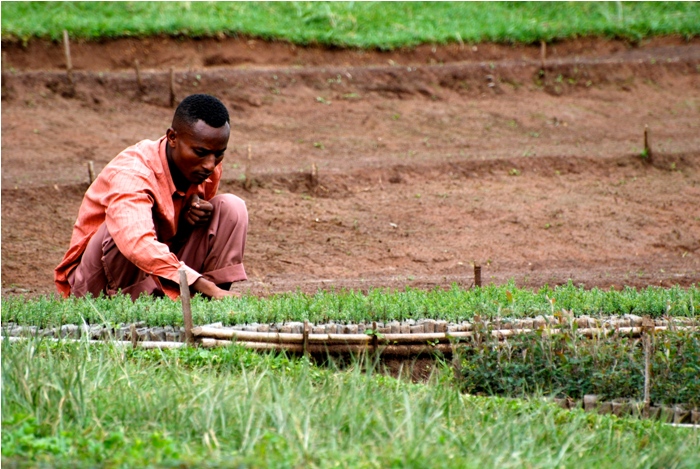
Happy Earth Day!
Our offices are in
Seattle Washington, and the winter gray skies have finally started to give way
to blue skies, highlighting the beautiful mountain ranges to our East and West,
and the emerald evergreen forests that border our city. Even in such a
beautiful location it can be so easy to take for granted the fragility of the
environment, and we consistently seem to underestimate just how connected we
are to the ecosystems and reliant we are upon the earth for our most basic
needs.
On this Earth Day, we
encourage you to find a way to celebrate in your local community. Whether that is
by volunteering to plant trees, picking up litter, starting to recycle or
simply walking (not drive) down to your local market to buy local fruits and
veggies.
As an organization that
is focused on alleviating extreme poverty in the developing world, we would
like to remind you of the interconnectedness between environmental issues and
global poverty. These issues often get
separated as two very different concerns, and for the wealthy industrial
nations it’s easy to see how the disconnect happens: We turn on our faucets and
clean water comes out; we go to the grocery store to find a plethora of food;
our farmers have sophisticated irrigation systems and agricultural processes
that keep the food coming despite bad seasons.
In the developing world,
the relationship between the environment and the quality of life is much more pronounced.
Climate change, pollution and deforestation all compromise people’s ability to
access clean water, grow productive crops or raise livestock and lead healthy
lives. These are not environmental inconveniences in
the developing world, they impact people’s lives in real and tragic ways. Not
being able to grow a productive crop due to climate change or deforestation not
only affects their own family's food supply but their whole community’s, and it
depresses economic activity, which only exacerbates poverty. Not having access
to clean water leads to debilitating diseases that takes children out of school
and parents out of work, and ultimately takes the lives of millions every year.
These issues are not
insurmountable. ODW works with amazing organizations throughout the developing
world that are having a real and meaningful impact.
- Nuru is addressing the agricultural needs
in Kenya by developing a sustainable
model to help the locals take control of their own food and economic security. - charity water and a child’s right help communities
gain access to clean water.
We also currently have a campaign with Eden Reforestation Projects to help plant 200,000 trees in Ethiopia to help revitalize the land, which will help address a whole
range of issues connected to food and water security. Just $10 plants 100 trees.
Help plant trees now.
During your Earth Day observance,
take the time to consider the above issues. This is great time to think about
how our choices affect people all over the world whether that is through our contributions
to climate change, or through our action to take a stand with those that
struggle. It’s a very interconnected earth, let’s do our best to take care of
it, for the sake of the earth and everyone that calls it home.


